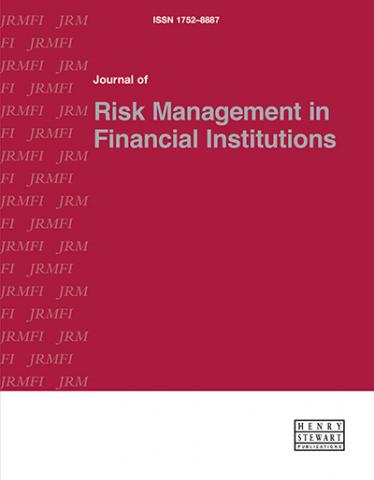"Journal of Payments Strategy & Systems goes beyond traditional periodicals and offers a strategic perspective on the payments landscape from all views. This is a focused, straightforward journal written by industry experts who live and breathe this business every day. This should be a key resource for anyone involved in this sector.”
Call for Papers - Special Issue - Managing FinTech Risks to Reap the Rewards
Submission deadline: 20th January 2025
Special Issue - Journal of Risk Management in Financial Institutions - Managing FinTech Risks to Reap the Rewards
Guest Editor: Dr. Thomas C. Wilson, CEO, Allianz Ayudhya Pcl and ex-CRO, Allianz Group
Prior to 2022, FinTech was a bright spot in the financial services landscape: the rapid growth in FinTech financing and IPOs led to a staggeringly strong shareholder performance as illustrated by the F-Prime FinTech Index’s over 1,100% return for the period 2015-2021, a +41% CAGR, significantly greater than the S&P 500 (+4%) and NASDAQ Index (+12.7%). While market and financing conditions have changed post-2022, FinTech activities still attract significant attention, as well as investment from entrepreneurs, incumbent banks and insurers.
Not surprisingly, outsized returns are often associated with outsized risks. More specifically, FinTech investors, entrepreneurs, incumbent banks and insurers must navigate the risk of:
- High failure rates as new ideas and technologies are tested, refined and scaled, a risk which can be managed through entrepreneurial leadership and by creating optionality in the financing and scaling of the activities, ensuring that the latter part of „fail fast, fail small“ is adhered to;
- Operational failures related to the new technologies, including cybersecurity, business continuity, vendor and partner management and IP (intellectual capital) protection;
- Regulatory challenges as new activities test the limits and efficacy of existing regulations, including the ethical use of data and AI models, consumer protection and sales practices, KYC / AML and sanctions, capital adequacy and other financial stability concerns, use of third-party IT service providers and data privacy;
- Changing market dynamics which might limit financing, liquidity and the potential for early stage investors to exit at attractive terms; and, finally,
- Disruption to incumbents' business models as FinTech entrepreneurs seek to overturn traditional finance.
To shed light on how investors, entrepreneurs, insurers and incumbent banks are managing the risks in order to reap the rewards, we are seeking original papers from practitioners, academics, policy makers, regulators, and consultants.
Submission guidelines:
The following types of articles will be considered for publication:
- Practice articles: Thought pieces, briefings, case studies and other contributions written by practitioners. Articles should be 2,000 to 5,000 words in length.
- Research papers: Contributions which explore new models, theories and research in risk management. The principal management implications of the submission should be included. Articles should be up to 6,000 words in length.
All submissions will be peer-reviewed to ensure that they are of direct, practical relevance to those working in the field.
Our current copy deadline for this special issue is 20th January 2025.
Manuscript submissions and enquiries should be submitted to the Publisher, Julie Kerry. Further, more specific guidance for authors on format and style can be found here.
Questions about this issue and proposals for papers should be directed to the Guest-Editor: Dr. Thomas C. Wilson at Thomas.W@allianz.co.th as well as the Publisher, Julie Kerry.
About Journal of Risk Management in Financial Institutions
The journal is a quarterly professional journal aimed directly at those responsible for managing risk in financial institutions. The journal publishes a mixture of technical papers as well as qualitative papers on five inter-related areas of risk: strategic, financial, operational, regulatory and systemic risk. The journal is aimed at senior management within the banking sector, companies providing a service to the financial sector, and governments, regulators and academics throughout the world with an interest in financial risk management. The journal publishes briefings, discussions, applied research, case studies, expert comment and analysis on the key issues. Further information on the journal is available here


